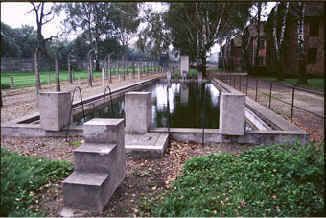Real0ne
Posts: 21189
Joined: 10/25/2004
Status: offline

|
quote:
ORIGINAL: InfoMan
quote:
ORIGINAL: Real0ne
so what? your point, or are you just mumbling to yourself again?
how about that is logistically impossible.
The concentration camps did not have the facilities, water supply, or resources to produce that much food on a daily bases - which means that it would have to be shipped there. Not only that - there is not enough cold storage on site to store such large quantities of perishable goods.
at over 70 tons and 40,000 gallons, you're looking at 3 freight cars and 4 tanker cars A Day.
The resource draw of these camps alone would create an intense drain on the surrounding towns... If such a thing happened, then in the very least the surrounding towns which would provided such resources to each of the camps would of seen a massive economic boom as the military would contract farms and bakers to provide such high volumes of resources to supply the camps... but no such documentation of such an event exists... no contracts, no currency exchange, not even increased production yields for the surrounding area's can be shown.
Such a claim implies a high volume of resource drain... Yet seemingly this draw cannot be seen effecting anything, which begs the question - where did this +70 tons of perishable goods daily even come from?
thats a lotta talk for someone who's wrong 99% of the time.
Your first red herring line of bs is the assumption tha camps were self sufficient. It makes a great sounding story, but nothing more than a 'story', since those who deal in reality know they were not self sufficient and had to get and did get food from outside sources.
The camps had plenty of water, hell they had enough water that the prisoner swimming pools were full:

_____________________________
"We the Borg" of the us imperialists....resistance is futile
Democracy; The 'People' voted on 'which' amendment?
Yesterdays tinfoil is today's reality!
"No man's life, liberty, or property is safe while the legislature is in session
|

 Profile
Profile




 New Messages
New Messages No New Messages
No New Messages Hot Topic w/ New Messages
Hot Topic w/ New Messages Hot Topic w/o New Messages
Hot Topic w/o New Messages Locked w/ New Messages
Locked w/ New Messages Locked w/o New Messages
Locked w/o New Messages Post New Thread
Post New Thread